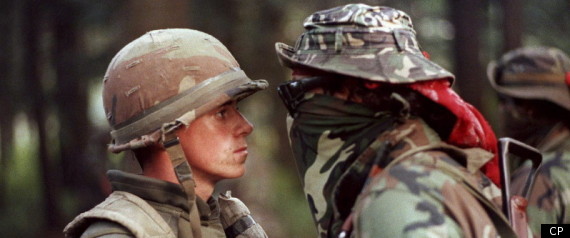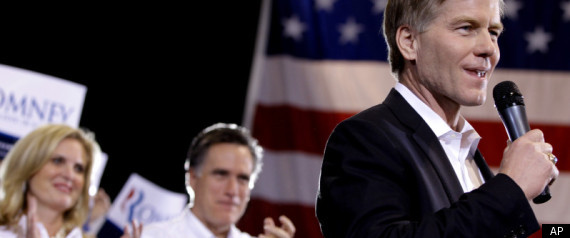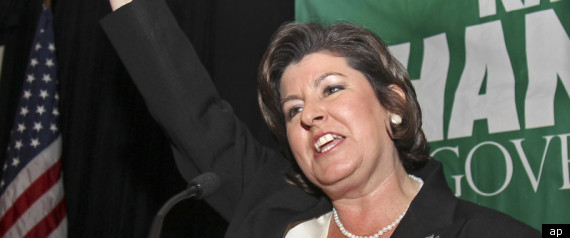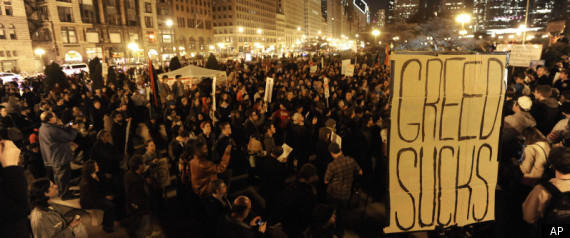They expected 2,000 to attend and, according to police reports, 2,000 people demonstrated their opposition to the proposed Northern Gateway pipeline and shut down the main street of the small northern city of Prince Rupert, B.C. When 15 per cent of the 13,000 who live in any city are marching on the street, it's significant. Also significant is that CBC reported only 600. The lesson? Never trust the media to count your crowd.
CBC also reported that First Nations leaders are worried about their relationship with Ottawa as a result of their opposition to the pipeline.
Dallas Smith, the president of the Nanwakolas Council, said that even though he is not from the territory that will be directly affected by the pipeline, he's been working in support of the concerns of his fellow First Nations.
"I think the opposition is based on the risk," Smith said. "But there's more at hand, there's a relationship that needs to be built with the federal government right now and this is going to be really tricky to manoeuvre around, making sure that the whole relationship doesn't get caught up in this issue."
"We're really concerned... about the ripple effect of this project and what it's going to do to our already non-existent relationship with the federal government," Smith said, later clarifying that the relationship is not really "non-existent" but is definitely "not as genuine" as the First Nations relationship with the B.C. government. [Video link here.]
How could anyone possibly have a "genuine" relationship with the HarperCon government, especially when said government hides Environment Canada documents about the impact of the tar sands on local communities, economies and environments until it suits them?
The latest document singles out the oilsands sector as the main obstacle in Canada's efforts to reduce heat-trapping greenhouse gases that warm the atmosphere and cause climate change. "The oilsands are Canada's fastest growing source of GHGs," said the document.
It estimated that the industry's annual greenhouse gas emissions would rise by nearly 900 per cent from 1990 to 2020. By the end of that period, the oilsands -- with an estimated annual footprint of 90 million tonnes of carbon dioxide equivalent gases in 2020 — would exceed the carbon footprint of all cars and SUVs on Canadian roads from 2008, according to the Environment Canada document.
There is no doubt in The Regina Mom's mind that this is why 60 scientists at Environment Canada were fired by the HarperCon government last month. Harperites don't need pesky facts getting in the way of their agenda!
Sixty scientists with Environment Canada received notice that their jobs are "surplus" as of Jan. 11, confirming Minister Peter Kent's announcement last August that 776 department positions would meet the chopping block due to the Conservative government's belt-tightening.
Though the department is under "strict orders" not to reveal what work the surplus scientists are doing, the Professional Institute of the Public Service of Canada (PIPSC) -- the union representing them -- said the 60 employees include "senior engineers, environmental compliance officers, biologists, climatologists and others" responsible for reporting on pollution, monitoring water quality and climate research.
We can be certain that those currently running the government of Canada would rather not believe the facts when it comes to climate change. They'd much rather believe the pseudo-science of paid deniers over the real science of professional scientists. And they'll cherry-pick data on an as-needed basis, thank you very much. Things like this graph, clearly showing the upward curve of global temperature changes over the past 130 years, just don't work with their plan to expand the tar sands.

Pressure from those radical environmental groups with their radical agendas -- you know the type -- those using fact-based research -- now seem to have forced the hand of evangeliCons and their buddies in the big-ass oil industry. The HarperCons have announced, for the second time in as many years, that they are going to monitor the effects of the tar sands. At least, it appears that they will. As TRM mentioned last week, Halifax MP Megan Leslie dismissed it as a PR stunt.
"The announcement was a public relations stunt," says Leslie. "The Alberta Environmental Monitoring Panel said any monitoring that's done has to be arm's-length; it has to be separate from government and we heard the environment minister say today it's still going to be government run."
But that Alberta Environmental Monitoring Panel consisted of independent experts in the field -- you know, real scientists. So, a government-run monitoring system would be better for the HarperCons. It would easily allow for the aforementioned cherry-picking. And it's what the industry likes, too! TRM supposes it's in their best interests to like it, given the $1 billion in tax cuts, subsidies and incentives it receives from government. [Note 1: This links to a large PDF; See p. 18 for the detailed list. Note 2: The data is based on 2002 numbers; it's unlikely subsidies et al have decreased during the tenures of oil-friendly governments of the intervening decade.]
And so, as the HarperCon Prime Minister heads to China to visit with his old buddy David Emerson who's there working out more ways to sell out our country to the China Investment Corporation and Sinopec and who knows who else, the PM would certainly like to believe he's quelled the voices of the so-called radicals. TRM has kept quiet for a couple of days, yes, but she's nowhere near finished with making noise about Canada's dirty oil!
Original Article
Source: Rabble.ca
Author: Bernadette Wagner
CBC also reported that First Nations leaders are worried about their relationship with Ottawa as a result of their opposition to the pipeline.
Dallas Smith, the president of the Nanwakolas Council, said that even though he is not from the territory that will be directly affected by the pipeline, he's been working in support of the concerns of his fellow First Nations.
"I think the opposition is based on the risk," Smith said. "But there's more at hand, there's a relationship that needs to be built with the federal government right now and this is going to be really tricky to manoeuvre around, making sure that the whole relationship doesn't get caught up in this issue."
"We're really concerned... about the ripple effect of this project and what it's going to do to our already non-existent relationship with the federal government," Smith said, later clarifying that the relationship is not really "non-existent" but is definitely "not as genuine" as the First Nations relationship with the B.C. government. [Video link here.]
How could anyone possibly have a "genuine" relationship with the HarperCon government, especially when said government hides Environment Canada documents about the impact of the tar sands on local communities, economies and environments until it suits them?
The latest document singles out the oilsands sector as the main obstacle in Canada's efforts to reduce heat-trapping greenhouse gases that warm the atmosphere and cause climate change. "The oilsands are Canada's fastest growing source of GHGs," said the document.
It estimated that the industry's annual greenhouse gas emissions would rise by nearly 900 per cent from 1990 to 2020. By the end of that period, the oilsands -- with an estimated annual footprint of 90 million tonnes of carbon dioxide equivalent gases in 2020 — would exceed the carbon footprint of all cars and SUVs on Canadian roads from 2008, according to the Environment Canada document.
There is no doubt in The Regina Mom's mind that this is why 60 scientists at Environment Canada were fired by the HarperCon government last month. Harperites don't need pesky facts getting in the way of their agenda!
Sixty scientists with Environment Canada received notice that their jobs are "surplus" as of Jan. 11, confirming Minister Peter Kent's announcement last August that 776 department positions would meet the chopping block due to the Conservative government's belt-tightening.
Though the department is under "strict orders" not to reveal what work the surplus scientists are doing, the Professional Institute of the Public Service of Canada (PIPSC) -- the union representing them -- said the 60 employees include "senior engineers, environmental compliance officers, biologists, climatologists and others" responsible for reporting on pollution, monitoring water quality and climate research.
We can be certain that those currently running the government of Canada would rather not believe the facts when it comes to climate change. They'd much rather believe the pseudo-science of paid deniers over the real science of professional scientists. And they'll cherry-pick data on an as-needed basis, thank you very much. Things like this graph, clearly showing the upward curve of global temperature changes over the past 130 years, just don't work with their plan to expand the tar sands.

Pressure from those radical environmental groups with their radical agendas -- you know the type -- those using fact-based research -- now seem to have forced the hand of evangeliCons and their buddies in the big-ass oil industry. The HarperCons have announced, for the second time in as many years, that they are going to monitor the effects of the tar sands. At least, it appears that they will. As TRM mentioned last week, Halifax MP Megan Leslie dismissed it as a PR stunt.
"The announcement was a public relations stunt," says Leslie. "The Alberta Environmental Monitoring Panel said any monitoring that's done has to be arm's-length; it has to be separate from government and we heard the environment minister say today it's still going to be government run."
But that Alberta Environmental Monitoring Panel consisted of independent experts in the field -- you know, real scientists. So, a government-run monitoring system would be better for the HarperCons. It would easily allow for the aforementioned cherry-picking. And it's what the industry likes, too! TRM supposes it's in their best interests to like it, given the $1 billion in tax cuts, subsidies and incentives it receives from government. [Note 1: This links to a large PDF; See p. 18 for the detailed list. Note 2: The data is based on 2002 numbers; it's unlikely subsidies et al have decreased during the tenures of oil-friendly governments of the intervening decade.]
And so, as the HarperCon Prime Minister heads to China to visit with his old buddy David Emerson who's there working out more ways to sell out our country to the China Investment Corporation and Sinopec and who knows who else, the PM would certainly like to believe he's quelled the voices of the so-called radicals. TRM has kept quiet for a couple of days, yes, but she's nowhere near finished with making noise about Canada's dirty oil!
Original Article
Source: Rabble.ca
Author: Bernadette Wagner






























